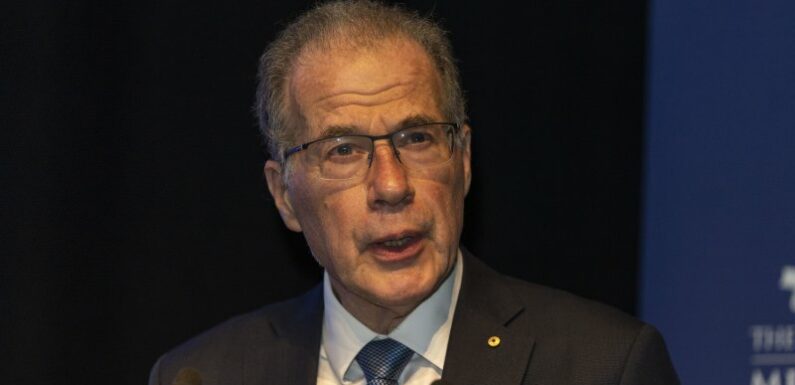
Save articles for later
Add articles to your saved list and come back to them any time.
An original architect of the National Disability Insurance Scheme says the lack of help for Australians outside the scheme – particularly those with mental illness or children with developmental delays – is “simply unconscionable”.
Professor Bruce Bonyhady, who is now co-chairing a review of the scheme, told a seminar discussing his review’s interim findings on Monday that “only one thing is certain” for Australians who need support but aren’t at a level where they can access the NDIS.
Professor Bruce Bonyhady said NDIS costs were spiralling because all levels of government stopped catering to people with a disability in their health, education and housing services.Credit: Eamon Gallagher
“And that is that you’ll get insufficient support or no supports, your disability will worsen and at some point, you’ll need to have the NDIS,” he said.
“I would argue that it is simply unconscionable what is happening today, if you’re not in the NDIS… It’s the exact opposite of what we’re trying to do with an insurance scheme, which is to maximise lifetime outcomes and minimise lifetime costs.”
Ten years after it launched, the $35 billion NDIS is facing a critical juncture as costs blow out by billions each year and thousands more people join than was ever expected. The blowouts, which put it on track to be one of the most expensive federal programs, have prompted the Albanese government to promise it will reboot the scheme with an 8 per cent annual growth target.
But Bonyhady said its costs were spiralling because all levels of government stopped catering to people with a disability in their health, education and housing services, which he refers to as “tier two” disability supports.
“The current challenges with the NDIS will only be fixed if Commonwealth state and territory governments work together. We also need to re-engage local governments who vacated the field since the NDIS commenced,” he said.
“I can’t emphasise enough that if we want an affordable scheme, there needs to be this firm foundation of tier two supports.”
He said the dynamic was “particularly acute” when it came to mental health and children. More than 8 per cent of young school children are now on the scheme, which was originally only intended to support one in 50 Australians.
The huge number of children joining the scheme – largely due to poor support outside it – is one key reason the NDIS cost forecast for last financial year blew out within just nine months.
Bonyhady said public discussions about the scheme’s sustainability created a lot of anxiety for participants. However, he said repeated blowouts risked undermining public support.
“We do need to recognise that the scheme does need to be sustainable. It was always part of the original architecture,” he said.
“In recent years, NDIS costs have just not been predictable, and we need to acknowledge that that lack of predictability undermines public trust and confidence.”
Bonyhady said the 8 per cent growth target – which state and territory leaders have agreed to – would give more confidence the scheme was being managed well and go “some way to diffuse the cries that we have at the moment, that NDIS costs are out of control”.
He said the flipside to the narrative of blowout costs was the scheme’s many benefits. But they needed to be better measured so there could be a balanced discussion about sustainability.
Review co-chair Lisa Paul, a former education department secretary, also said that the scheme’s markets were not working. Instead, they produced insufficient options for people in remote areas or “NDIS taxes” that raised prices for participants in others.
“It’s not a real market, is it?” she said. “There are many places in which participants cannot exercise choice and control l… It’s not properly differentiated and the incentives in it aren’t the right incentives.”
Bonyhady and Paul are scheduled to hand down their final report in October.
Cut through the noise of federal politics with news, views and expert analysis from Jacqueline Maley. Subscribers can sign up to our weekly Inside Politics newsletter here.
Most Viewed in Politics
From our partners
Source: Read Full Article
